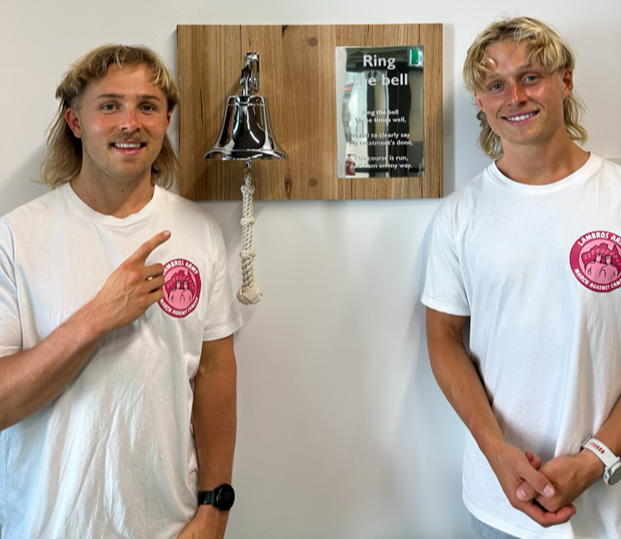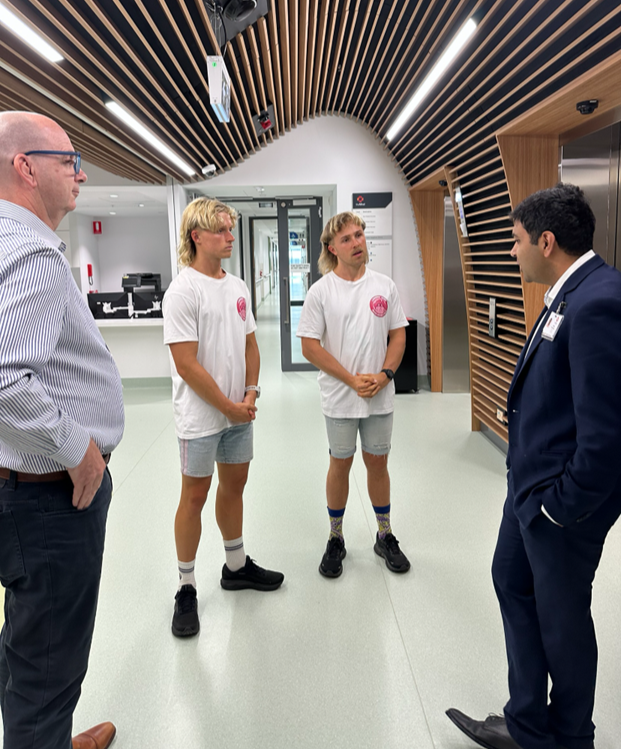Lambros taking it one step, of tens of thousands, at a time

A $2 million grant from Australian Cancer Research Foundation (ACRF) is already making a great impact in the Paula Fox Melanoma and Cancer Centre.
Awarded to Alfred Health and Monash University to establish the ACRF Centre for Dynamic Immuno-Oncology, this groundbreaking project aims to transform cancer immunotherapy by leveraging advanced imaging technologies to monitor immune responses in real time.
The innovative research aims to tailor immunotherapy approaches to the unique cancer and immune biology of each patient.
This will be accomplished by tracking how a cancer patient’s immune system responds to immunotherapy and predicting harmful side effects by identifying early signs of adverse effects of neurotoxicity.
Professor Mark Shackleton, Director of Oncology at Alfred Health, said the project fitted perfectly into the centre’s approach to provide individual, holistic care to patients and place The Alfred and Australia at the forefront of global cancer immunology research.
“Part of treatment is understanding the cancer itself, but also how a person’s body and immune system responds to that cancer,” he said. “That is quite different from person to person.
“We think the next revolution of personalising cancer care is to take these factors into account. Our aim through this centre and this funding is to develop the methods that we think everyone will be doing in the future, as soon as possible.”

This includes using the state-of-the-art whole-body Quadra PET-CT imaging technology, which will be delivered soon.
Aiding access to this transformative technology are fundraising efforts from the likes of Lachie and Stef Lamble – otherwise known as the Lambros.
The enterprising young brothers were further inspired to continue to raise money for cancer research and ACRF after they got a firsthand look at the centre in February.
Taking things more than just one step at a time, the pair ran from Perth to Melbourne within 100 days last year, raising almost $250,000 in the process.
They have even bigger aspirations in 2025, planning to run from the top to the bottom of the United Kingdom throughout August – travelling about 50km a day – and raise one million pounds in the process ($2.4 million) to support Cancer Research UK.
“We understood that exercise is such a crucial part for those people battling cancer, and it is such a good way to inspire a nation to get behind the cause and put one foot forward, one step of the way, across Australia,” Stef said. “And that’s what we did. We wanted to inspire people to keep moving forward and fighting through their battles.”
“This is why our messaging was ‘march against cancer’,” Lachie added. “We believe that, like Vivek said, you have a multidisciplinary approach and if everyone is marching against cancer together, it’s so much easier to find solutions.”

Associate Prof Vivek Naranbhai.
The brothers were inspired to raise money for cancer research after losing one grandmother to cancer and have another be treated for it.
Having never set foot in a cancer centre before, Lachie and Stef toured the world-class facility alongside Prof Shackleton and Associate Prof Vivek Naranbhai.
Stef said that he was “taken aback” by what he witnessed: “It was a crazy experience seeing so many different health professionals coming together to collaborate and make great, groundbreaking research actually come to life.”
“This didn’t feel like a hospital at all – it felt like a place you could come as a patient and get the personalised care that you need to overcome the cancer in an environment that feels so comfortable,” Lachie said.
A/Prof Naranbhai added that all money donated has immediate and future impact for cancer care.
“I think the most important thing is that it is helping to save lives now, but it is going to help many, many, many more lives in the future,” he said. “So any money given, whether a penny or a cent, or more than that, is definitely going to help patients now and in the future.”


_500_333.jpg)
